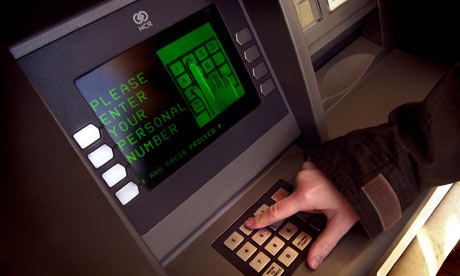What has been going on?
For years high street banks have been charging customers for going overdrawn. Estimates suggest they have been making about £4.7bn a year from fees of as much as £39 for a bounced cheque and £28 a day for an unauthorised overdraft, even though the administration costs are just a couple of pounds.
Some customers have racked up thousands of pounds in charges as fee has been piled upon fee. Mounting anger at the charges led to campaigns from consumer groups and stories emerged about customers who complained, threatened court action and subsequently won back hundreds and sometimes thousands of pounds.
In March 2007 the Office of Fair Trading (OFT) announced a formal investigation into the charges, although it ruled out introducing a cap. In the summer of that year the payouts stopped after the OFT announced a test case against eight current account providers in a bid to establish the legality of the charges. That case has been winding its way through various courts ever since.
So what did the supreme court decide today?
It ruled that the OFT did not have the power to determine the fairness of unauthorised bank charges. The judges said the banks can charge what they want for the fees; that they do not have to reflect the cost of the administration involved. They say the charges were not concealed and consumers knew what they were in for when they signed up for the accounts, which means the OFT could not test them under the regulations.
I have already lodged a claim. What now?
Unfortunately you are unlikely to get your money back. The British Bankers' Association says it is up to the banks to deal with the 1.2 million claims they have on hold, and that it expects it to be done on a case-by-case basis.
However, the Lloyds banking group has confirmed that, although it plans to revisit the claims it has received from customers in financial hardship, it will reject those from other customers. Other banks are likely to take the same stance.
My claim is on hold with the county court. What does this mean?
It seems there is not much you can do. Marc Thorley, commercial litigation partner at law firm Simmons & Simmons, says the cases on hold at county courts will be decided by each judge separately, but that most people will have brought them on the basis of the charges either being penalty charges or unfair – both of which have been rejected by the supreme court.
He says consumers will only be able to take new cases to court if they can find new grounds for complaint, something the OFT will also be looking to do. "We don't think there are grounds for a challenge," he adds.
I was going to lodge a claim after the case. Can I still do so?
If you are in financial hardship – the Financial Ombudsman Service defines this as "where the consumer's income is insufficient to cover reasonable living expenses and meet financial commitments as they become due" – you should press on and lodge a claim. For more information see the letter the FOS sent to banks last month.
However, for everyone else it is probably not worth pursuing.
So who currently charges what?
Since the start of the year banks have begun to change the charging structures on their current accounts, seemingly in preparation for defeat.
In October, Halifax launched a £2-a-day fee for unauthorised overdrafts, then in November Santander announced it would launch a fee-free account in the new year.
Many banks still charge hefty interest rates for customers who go over their overdraft limits. These include 29.99% at Clydesdale Bank, 28.7% at Abbey, and 19.24% at Royal Bank of Scotland.
Penalty fees are also very much still around with Abbey charging £25 a month, Alliance & Leicester charging £5 a day for a maximum of 20 days, and Nationwide and Royal Bank of Scotland charging £20 a month.








